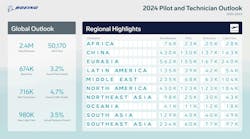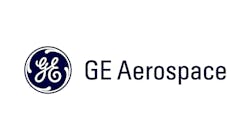Each spring, ARSA’s team runs the association’s Annual Member Survey. Thanks to a lot of effort in standardizing the survey’s questions, responses provide a useful snapshot of the maintenance industry that forms an ongoing narrative we closely follow year over year.
The story often reflects incredible change and economic swings. During the business disruptions of the global pandemic, our annual survey and others ARSA conducted provided key insight regarding dramatic shifts in employment and revenues. ARSA took the survey data to Congress, which in turn directed billions of dollars in COVID relief to the maintenance industry.
On the other hand, some answers are reliably consistent year over year, especially member expectations. Except for the special pandemic survey administered in the middle of 2020, ARSA members have been uniformly bullish about the future:
Which statement best reflects your company's business outlook for the coming year versus [the past year]?
Response | 2021 | 2022 | 2023 |
Our revenues and markets will grow. | 53% | 78% | 69% |
Our revenues and markets will stay the same. | 25% | 9% | 19% |
Our revenues and markets will contract. | 6% | 8% | 5% |
I don’t know. | 15% | 5% | 8% |
In each of the past three years, more than half of respondents have forecasted growth for their business. The past two years have seen more than two-thirds in this most-hopeful category – 2022’s was nearly four out of five – with no more than 8 percent ever predicting contraction. This positive expectation drives responses to a related question about hiring plans: Similarly strong majorities expect to add personnel (or at least try to … we know how difficult finding talent can be) with almost all planning to at least hold their workforce steady, which usually requires hiring to account for attrition.
The growth our members have consistently predicted is happening. The 2023 installment of ARSA’s Annual Global Fleet & MRO Market Report, produced by Oliver Wyman, found the active global air carrier fleet is almost back to pre-pandemic levels and in North America it is larger than in 2019. Passenger demand is expected to recover fully by 2024, with aircraft utilization rising steadily. These factors, combined with several years of limited airframe deliveries, which kept average fleet ages high despite retirements of older aircraft – will drive maintenance demand for the decade: The market is expected to grow by a rate just shy of 3 percent through the 2030s.
Of course, nobody can completely predict the future. In 2020, ARSA members responding to that year’s member survey in February and early March were recognizably bullish about the future…just weeks before a global shutdown led to an unprecedented downturn. Past “sensitivity analyses” by Oliver Wyman had projected the maintenance market would be particularly resilient in the face of a “black swan” event…but could never have foreseen a such a dark outcome as parking the majority of the world’s aircraft for months on end.
ARSA’s survey shows that future optimism routinely outstrips the reality of recent experience. Regardless of how respondents report their companies have fared in recent years, members are consistently more likely to predict coming expansion than to report experiencing it in the past. Even in the face of that immediate reality and dealing with considerable challenges including maintenance data availability, workforce development, and international politics, the typical aviation professional always sees clear skies ahead.
Tapping into that spirit is worth more than a pick-me-up. It’s a mechanism to help bring good things to pass. Seeing growth ahead can guide how we solve current problems, attract new talent, and perceive new markets (does anyone seem more hopeful for the future than new market entrants like eVTOL firms and UAS makers?).
Expecting growth is fantastic, making it happen is our responsibility.
Brett Levanto is vice president of operations of Obadal, Filler, MacLeod & Klein, P.L.C. managing firm and client communications in conjunction with regulatory and legislative policy initiatives. He provides strategic and logistical support for theAeronautical Repair Station Association.



